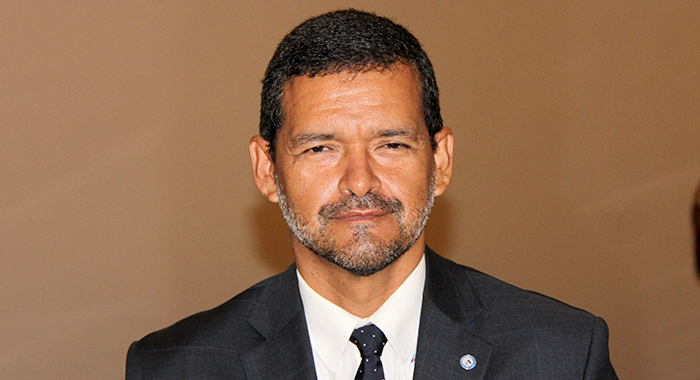By Raul Salazar
Chief of the United Nations Office for Disaster Risk Reduction (UNDRR), Regional Office for the Americas and the Caribbean
The world has changed. The COVID-19 pandemic has shown us how fragile we are as a society and how we are interconnected in different and complex ways. It has also shown us the need to understand the risks and prepare for them.
At some point (of the pandemic), 98.6% of the world student population was not in school, either not receiving learning or in online education. The pandemic is a disaster that will last for generations. A generation that risks losing more than $10 trillion in earnings over their working lives, according to the World Bank (either as employees or employers). Based on information provided by ministries of education in Latin America and the Caribbean, on average, primary and secondary students lost 158 days of the 190 days of the school calendar in 2020.
This was an unprecedented global shock to the education system. And that loss of education increases gaps and inequality not only in the school system, but also social vulnerabilities. The disappearance of a large sector of the school population from the educational system will create significant effects on all social fibers, including the economic ones.
School safety is even more urgent in the face of the uncertain scenario we face, exacerbated by climate change. The Caribbean, for example, must prepare for multiple hazards, volcanic eruptions, extensive cyclonic seasons and even earthquakes, as evidenced in Haiti. The scene is complex, and without appropriate school security, educational deficiencies will be even more evident, with higher school dropouts and a considerable setback in the education of our people.
This is why we must focus on building a stronger school system. Our children will inherit our planet, so it is upon us to put ourselves in a path of sustainability and resilience. As responsible societies, we must deliver on the most basic things. Ensuring that our students, our schools, and our education systems are resilient is one of them.
The Third Caribbean Ministerial School Safety Forum, hosted by the Ministry of Education, Culture, Youth and Sport of St. Maarten, June 28 to 302022 in St. Maarten, will be a new, stronger, step towards the future our children deserve.
This event will be an opportunity to provide a multistakeholder and regional coordination form, to institutionalise and to strengthen a multi-sectoral and interdisciplinary and a transdisciplinary management of different hazards including biological ones, and to enhance cooperation and collaboration across sectors and ensure a human-centered approach with a focus on the most vulnerable so that we leave no one behind.
The pandemic has been a tremendous test for the Caribbean, which has had to implement health and education measures in the midst of an active cyclonic season. Nevertheless, more than half of the Caribbean countries opened their schools by the middle of 2021, with more than 80% of these nations with educational platforms that allowed their students to continue classes remotely. This connectivity demonstrated the inter-sectoral action needed to address systemic risks, and the importance to work with other ministries in order to secure education
continuity.
This forum is a call on us to leverage public and private investments for disaster resilience through structural, non-structural and functional measures in vital facilities, particularly schools and hospitals. And in order to boost school safety in the Caribbean, education policies and plans need to be aligned with the Sendai Framework for Disaster Risk Reduction, the Sustainable Development Goals and the Paris Agreement on climate change.
Only together will we move forward. And it must be in a comprehensive manner, with an inter-institutional and inter-sectoral effort that employs the disaster management capacities of different sectors and implements well-developed plans and strategies. We must be united as a region, with governance that allows us to cement the path towards sustainable and regenerative development and adapting our societies to the climate variabilities. The Caribbean Safe Schools Initiative is a clear example of the path we must follow, more so in the Caribbean, a region where the intensity and frequency of natural hazards is increasing and where climate adaptation is an obligation.
Our future lies in education, and tomorrow’s leaders lie today in schools. We must act now to protect them and prepare them.
The opinions presented in this content belong to the author and may not necessarily reflect the perspectives or editorial stance of iWitness News. Opinion pieces can be submitted to [email protected].






